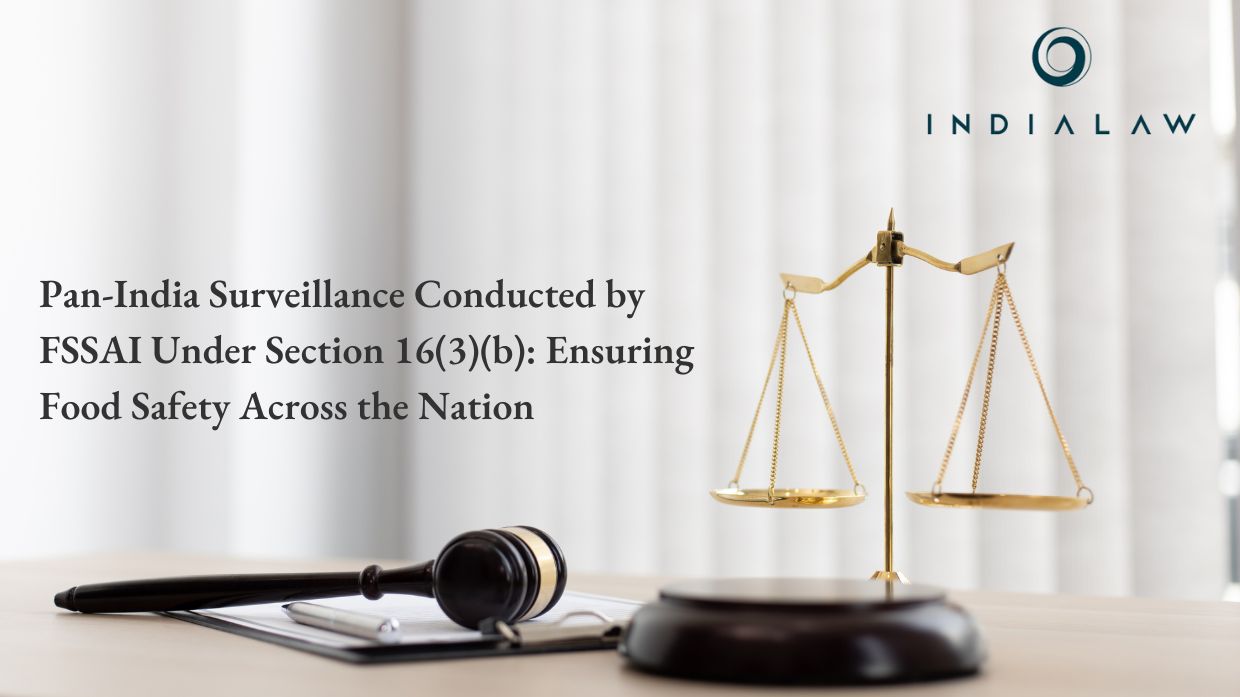Pan-India Surveillance Conducted by FSSAI Under Section 16(3)(b): Ensuring Food Safety Across the Nation

The FSSAI is implementing a comprehensive pan-India surveillance initiative aimed at enhancing food safety monitoring through a standardized and structured approach. The program will encompass over 250 districts across India and will assess more than six key food products or commodities from a predetermined list.
This surveillance effort is designed to improve compliance with food safety standards, benefiting both the food industry and consumers. For businesses, it means greater transparency and the opportunity to identify and address potential safety issues proactively. For consumers, it promises improved food quality and safety, fostering greater trust in the food supply.
Here’s everything your business needs to know about this important initiative and how it can impact your operations and the overall food market. This article delves into the objectives, methodology, and implications of this surveillance initiative on food business operators
Impact of Section 16(3)(b)
The Food Safety and Standards Authority of India (FSSAI) plays a pivotal role in ensuring the safety and quality of food in the country. One of its significant initiatives is the pan-India surveillance program conducted under the provisions of Section 16(3)(b) of the Food Safety and Standards Act, 2006. The aim of the program is to collect, analyse, and summarise scientific and technical data on the incidence and prevalence of biological risks, food contaminants, residue levels or various contaminants and emerging risks.
The current PAN India Surveillance aims to evaluate the safety and quality of food products across the country. This initiative focuses on identifying vulnerable hotspots where food adulteration and malpractices are prevalent, establishing a continuous surveillance framework to ensure consumers have access to safe and nutritious food.
The surveillance will be an ongoing process, involving regular sampling of food products manufactured, marketed, or imported in India to assess safety and quality parameters, as well as compliance with labelling requirements. An accredited agency will conduct the sampling and analysis, adhering to ISO/IEC 17025:2017 standards.
The FSSAI will provide essential resources, including standard operating procedures (SOPs), sample plans, and a list of accredited laboratories for analysis. Training sessions for state officials and samplers will be conducted virtually, focusing on surveillance methods and the use of a mobile application for data collection.
FSSAI will select laboratories based on their accreditation and capabilities to analyse specified parameters, ensuring testing integrity and conformity to regulations. The said accredited agency will manage payments to these laboratories according to FSSAI’s established fee structure.
Reporting will involve thorough documentation of the surveillance process, with all analytical data submitted according to FSSAI guidelines. A mobile app will be developed to track all activities related to the surveillance from start to finish.
For the 2023-24 surveillance plan, the accredited agency will initially focus on six food commodities from a predetermined list and the FSSAI may enlarge the scope of the surveillance based on emerging risks and reported issues related to food safety and standards. This structured approach aims to enhance food safety monitoring throughout India.
Objectives of the Surveillance Program
- Assessing Compliance: The primary goal of the surveillance program is to evaluate the adherence of food businesses to established safety norms and regulations. This helps identify non-compliant operators and facilitates timely intervention.
- Identifying Contaminants: The surveillance focuses on detecting foodborne pathogens, contaminants, and adulterants in food products. This is crucial for minimizing health risks associated with food consumption.
- Consumer Awareness: By disseminating findings from the surveillance, the FSSAI aims to educate consumers about food safety issues and promote informed choices.
- Policy Formulation: The data collected through the surveillance helps in formulating policies and guidelines for food safety, ensuring that they are based on empirical evidence.
Methodology of the Surveillance Program
The pan-India surveillance initiative employs a systematic approach to gather and analyse data on food safety. Key components of the methodology include:
- Sampling: A diverse range of food products is sampled from various locations, including urban and rural areas, to ensure a comprehensive assessment. Samples may include packaged foods, street food, and locally produced items.
- Laboratory Testing: Samples undergo rigorous testing in accredited laboratories to detect the presence of contaminants, pathogens, and chemical residues. This scientific analysis forms the backbone of the surveillance initiative.
- Data Analysis: The FSSAI employs advanced data analytics to interpret the results, identify trends, and highlight areas of concern. This information is crucial for informed decision-making.
- Stakeholder Engagement: The program involves collaboration with state food safety departments, local authorities, and industry stakeholders. This multi-tiered approach fosters a culture of food safety and accountability.
Implications of the Surveillance Program
- Public Health Protection: The primary benefit of the surveillance program is the protection of public health. By identifying unsafe food products and practices, the FSSAI can mitigate risks and prevent foodborne illnesses.
- Enhanced Regulatory Compliance: Regular monitoring encourages food businesses to comply with safety standards, as the knowledge of surveillance activities can act as a deterrent against malpractice.
- Informed Consumer Choices: The dissemination of surveillance findings empowers consumers with knowledge about the safety and quality of food products, enabling them to make informed choices.
- Strengthened Food Safety Framework: The insights gained from the surveillance contribute to the continuous improvement of India’s food safety framework, aligning it with global best practices.
Conclusion
The pan-India surveillance conducted by the FSSAI under Section 16(3)(b) is a vital component of India’s food safety strategy. By systematically monitoring food products and business operators, the FSSAI not only ensures compliance with safety standards but also protects public health and promotes consumer awareness. As food safety continues to be a paramount concern, such initiatives are essential for building a safer food ecosystem in India. The ongoing commitment to transparency, data-driven decision-making, and stakeholder collaboration will further enhance the effectiveness of food safety measures in the country.
By entering the email address you agree to our Privacy Policy.



